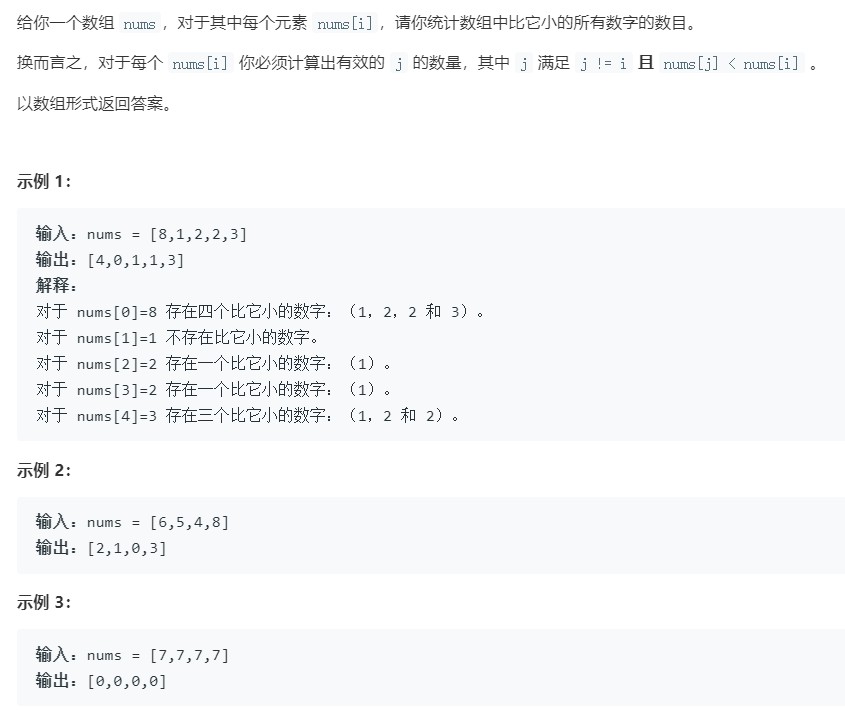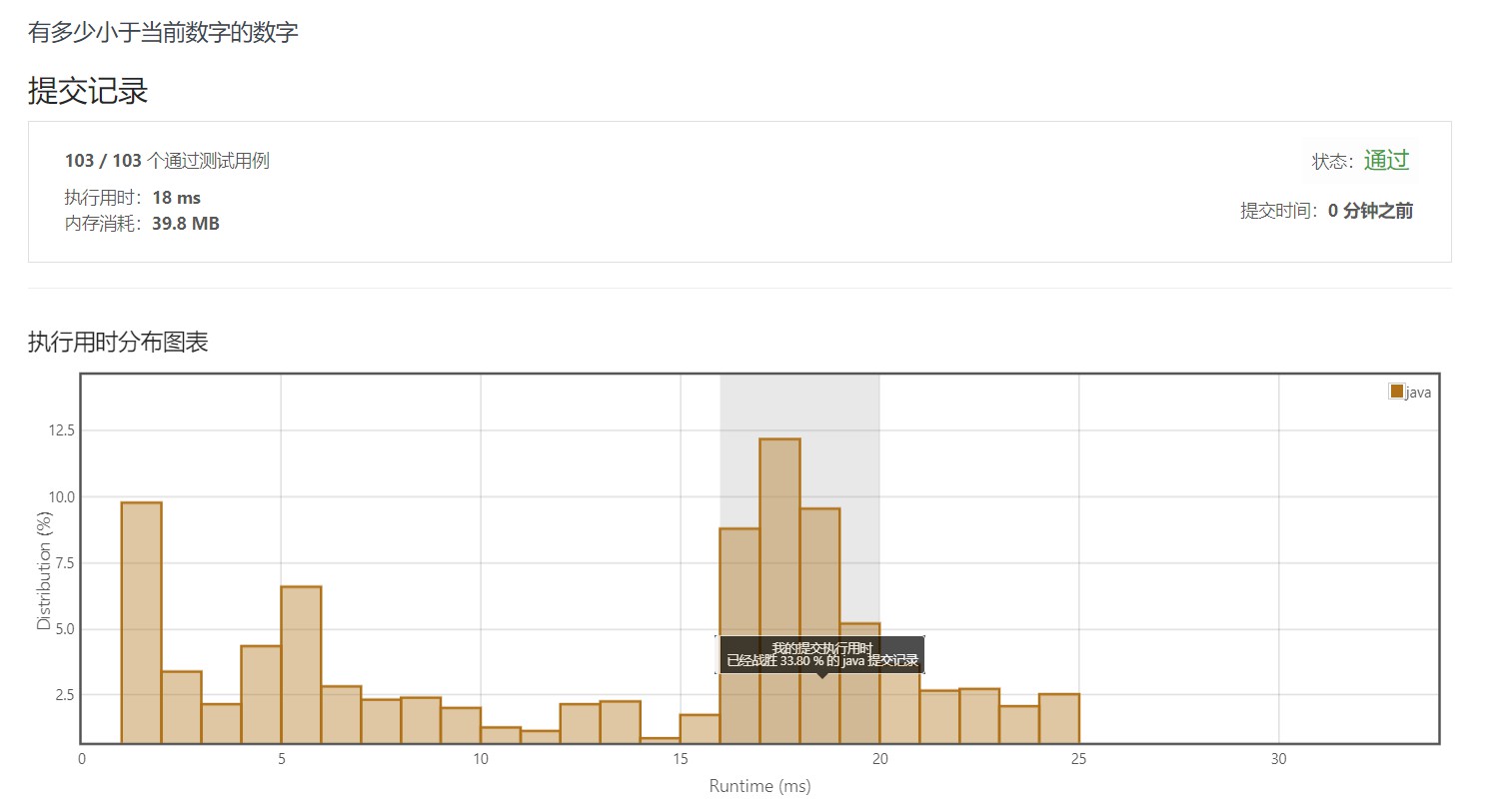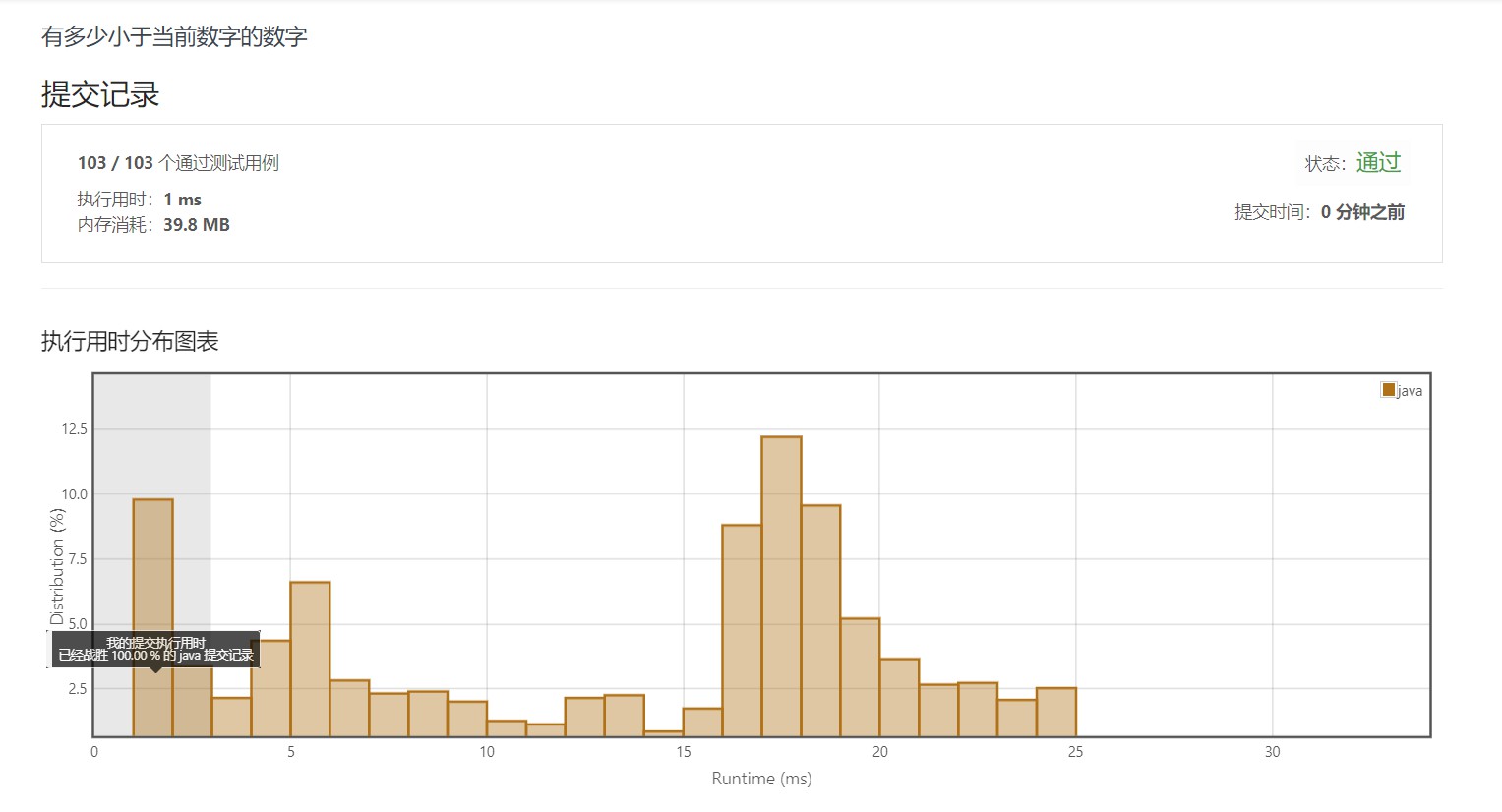1365. 有多少小于当前数字的数字『简单』
题目来源于力扣(LeetCode)
一、题目

提示:
2 <= nums.length <= 500
0 <= nums[i] <= 100
二、解题思路
2.1 暴力法
-
创建一个与 nums 相同长度的数组,用于存储相同索引上 nums 数组中元素大于其他元素的次数
-
将 nums 数组中每一个元素都与数组中的其他元素进行比较
2.2 桶思想
-
通过给定的数组元素取值范围,定义一个元素取值范围的数组,用于存储元素出现的次数
-
从前往后遍历元素,则所遍历的元素是从小到大的
-
后面的元素即是大于前面元素的数字,通过加上数组上的元素即可得到小于当前数字的元素所出现的次数,并将结果赋值到该索引的元素上
-
遍历 nums 数组,此时通过 nums 数组上的元素即可对应到 bucket 数组中,bucket 索引上的元素即为该索引值所大于的 nums 数组元素的次数
三、代码实现
3.1 暴力法
public static int[] smallerNumbersThanCurrent(int[] nums) {
int[] res = new int[nums.length];
// nums 数组中每一个元素都与数组中的其他元素进行比较,统计出小于该元素的元素个数
for (int i = 0; i < nums.length; i++) {
for (int j = 0; j < nums.length; j++) {
if (i == j) {
continue;
}
// 其他元素小于该元素时,统计加 1
if (nums[j] < nums[i]) {
res[i] ++;
}
}
}
return res;
}
3.2 桶思想
public static int[] smallerNumbersThanCurrent(int[] nums) {
// 桶思想,因为给定的数组元素的范围是 0 <= nums[i] <= 100,所以可以用数组记录下每个元素出现的次数
int[] bucket = new int[101];
for (int i : nums) {
bucket[i]++;
}
// 定义count:记录下数组中全部元素出现的次数
int count = 0;
for (int i = 0; i < bucket.length; i++) {
if (bucket[i] > 0) {
// 定义临时变量进行替换操作
int temp = bucket[i];
// 关键:当前所遍历的索引上的元素为 count 值,即小于该元素的元素个数
bucket[i] = count;
// count 是加上当前索引上的值,即元素在数组中出现的次数
count += temp;
}
}
for (int i = 0; i < nums.length; i++) {
int j = nums[i];
// bucket 数组中的元素已经记录下了 索引位中的元素在 nums 数组中出现的次数
nums[i] = bucket[j];
}
return nums;
}
四、执行用时
4.1 暴力法

4.2 桶思想

五、部分测试用例
public static void main(String[] args) {
int[] nums = {8, 1, 2, 2, 3}; // output:{4, 0, 1, 1, 3}
// int[] nums = {6, 5, 4, 8}; // output:{2, 1, 0, 3}
// int[] nums = {7, 7, 7, 7}; // output:{0, 0, 0, 0}
int[] result = smallerNumbersThanCurrent2(nums);
System.out.println(Arrays.toString(result));
}


